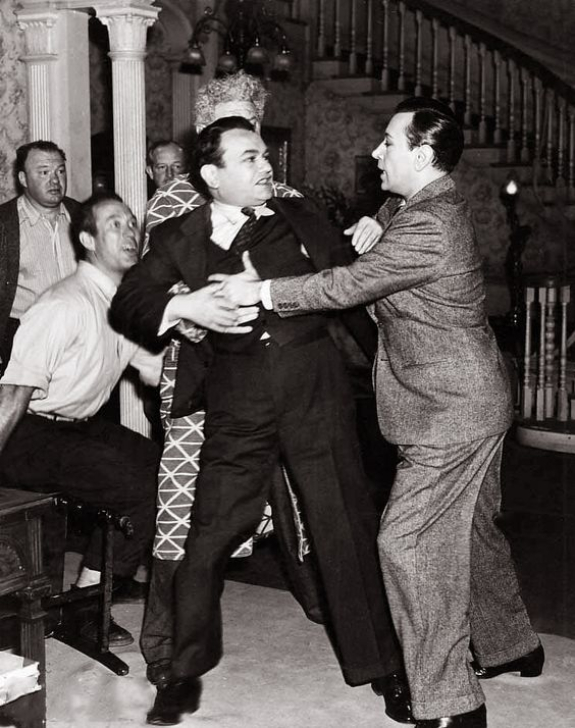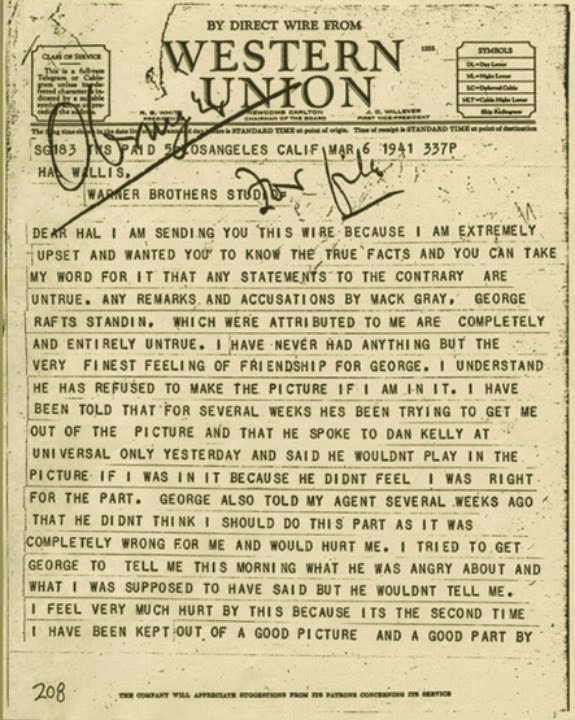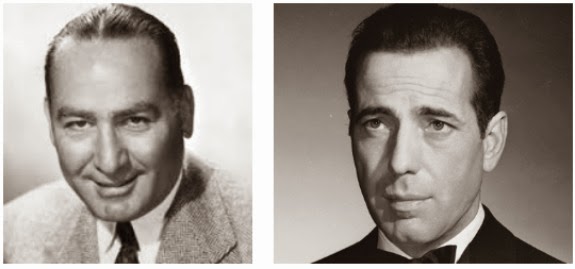During his career, George Raft had rejected a lot of roles. He seemed to have made a habit of turning down good parts, often in films that turned out to be classics, e.g. Dead End (1937), High Sierra (1941), The Maltese Falcon (1941) and Double Indemnity (1944). (After rejecting Double Indemnity, Raft later said: "I wasn't very intelligent then".)
One of the roles Raft had refused was the role of private investigator Sam Spade in John Huston's The Maltese Falcon. Raft didn't want to work with an inexperienced director —the film was Huston's debut— and he had no faith in Dashiell Hammett's story as it had been filmed twice before, having flopped both times*. Raft chose to do Raoul Walsh's Manpower (1941) instead, in which he received third billing after Edward G. Robinson and Marlene Dietrich.
*The Maltese Falcon (1931), the first version, was a pre-code starring Ricardo Cortez as Sam Spade. The second version was Satan Met a Lady (1936), a loose comedy adaptation of Hammett's story, starring Bette Davis and Warren William as the detective, renamed Ted Shane.
*The Maltese Falcon (1931), the first version, was a pre-code starring Ricardo Cortez as Sam Spade. The second version was Satan Met a Lady (1936), a loose comedy adaptation of Hammett's story, starring Bette Davis and Warren William as the detective, renamed Ted Shane.
The role of Sam Spade eventually went to Humphrey Bogart, turning him into a major star. Bogart had been Huston's first choice from the start and Huston was over the moon when Raft rejected the part. I guess we should be grateful to Raft for considering The Maltese Falcon "not an important picture", as he wrote to his boss Jack Warner in the following letter on 6 June 1941. Had Raft accepted and played Spade instead of Bogie, The Maltese Falcon would most likely not be the classic it is today.
Mr. Jack Warner
Warner Bros. Pictures Inc.
Burbank, California
June 6, 1941
Dear Jack:
I am writing to you personally because I feel any difference of opinion that may have arisen between us can be settled in a most friendly manner. As you know, I strongly feel that The Maltese Falcon, which you want me to do, is not an important picture and, in this connection, I must remind you again, before I signed the new contract with you, you promised me that you would not require me to perform in anything but important pictures — in fact, you told me in the presence of Noll Gurney [agent], you would be glad to give me a letter to this effect. A long time has passed since you made this promise to me and I think you should let me have this letter now.
I understand that you are quite agreeable to use someone else in The Maltese Falcon, provided you get an extension of my time. This I think is only fair....
Very sincerely,
George Raft
Source: Inside Warner Bros. (1935-1951) (1985), selected and edited by Rudy Behlmer.













